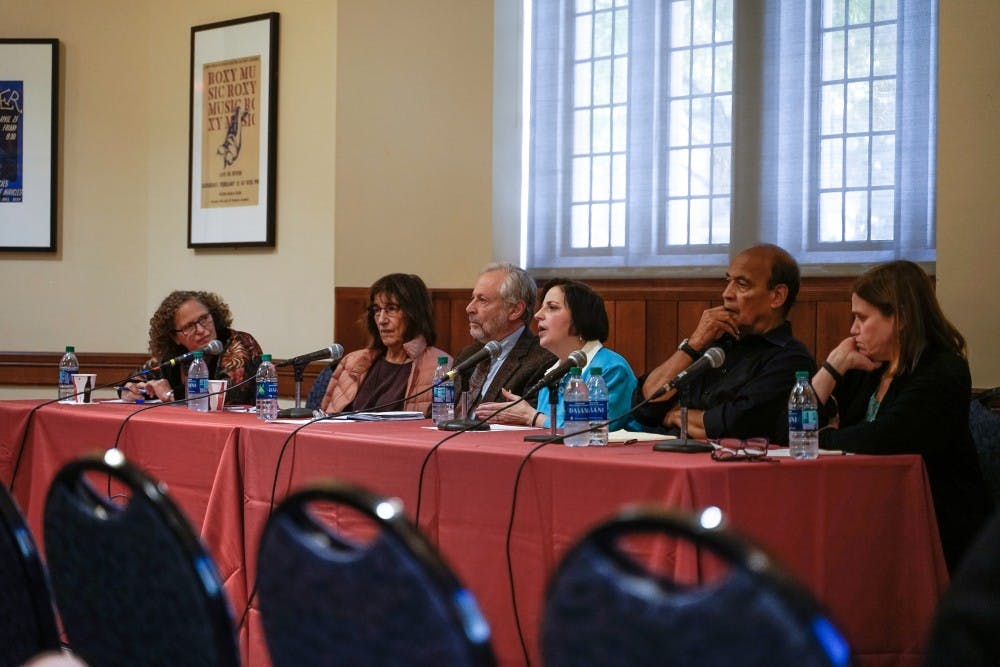Six professors gathered Thursday to discuss with members of the Penn community the Pittsburgh synagogue shooting, which killed 11 people including 1973 College graduate and 1977 Perelman School of Medicine graduate Jerry Rabinowitz.
The event panelists spoke in Irvine Auditorium about the roots of anti-Semitism, the reactions from students to the massacre, and the status of refugees and immigrants in America.
The panel, entitled “Murder of Jews in Pittsburgh: Reactions of Heart and Head,” was one of several events hosted on campus in response to the shooting, in addition to a vigil led by Penn Hillel last Monday.
Ian Lustick, a panelist and political science professor, said he organized the event not as a space for mourning, but as an opportunity for academics to use their knowledge to process the shooting and inspire public action.
“I believe that it’s important for the students to see models in their faculty who experience the same emotional challenges that the students are facing,” Lustick said. “The knowledge that the students are here to acquire helps and inflects and expands how citizens can cope with their emotions and do something productive."
College sophomore Justin Greenman attended the panel and said it provided him with a variety of political, historical, and psychoanalytic perspectives on the massacre.
Greenman also attended both the vigil in Rittenhouse Square on Saturday and the vigil on Penn’s campus, and said that they connected people of different religious and racial backgrounds.
“This isn’t just a Jewish issue,” Greenman said.
RELATED:
Former Penn classmates remember Jerry Rabinowitz: ‘I don’t think I’ve ever met a finer human being’
Penn alum, Jerry Rabinowitz, among dead in Pittsburgh synagogue shooting

Eileen Doherty-Sil, associate director of the political science undergraduate program and professor, said that she has largely witnessed five different student reactions after the massacre: shock, feeling targeted, a feeling of solidarity, political motivation, and a lack of surprise.
Lustick was also impressed by the question and answer portion of the event.
"The questions were on point, they were emotionally felt, they were informative. The last woman who spoke spoke about her experience in her Jewish community as someone who was in Shabbat services this Saturday, so I think that the panelists learned from the audience as well as hopefully the audience learning from the panelists," he said.
Panelists had differing opinions on the association between Trump’s immigration policies and the beliefs of the shooter, who posted several rants on social media against the Hebrew Immigrant Aid Society, a refugee resettlement agency.
Lustick said that while some did not want to exaggerate the role of Trump due to the long tradition of anti-Semitism in the United States, others focused on the influence of his rhetoric.
Panelist, history professor, and department chair Beth Wegner said that the attack arose not only out of hatred of the Jewish faith, but also out of hatred of Jews as “leftists, activists, liberals, and supporters of immigrants.”
“It is a Jewish tradition that after the community completes the reading of one book of the Bible it rises, as one, and sings: 'Hazak Hazak v'Nitchazek,'” Lustick said in his closing speech.“Be strong, be strong, let us be strong together.”










